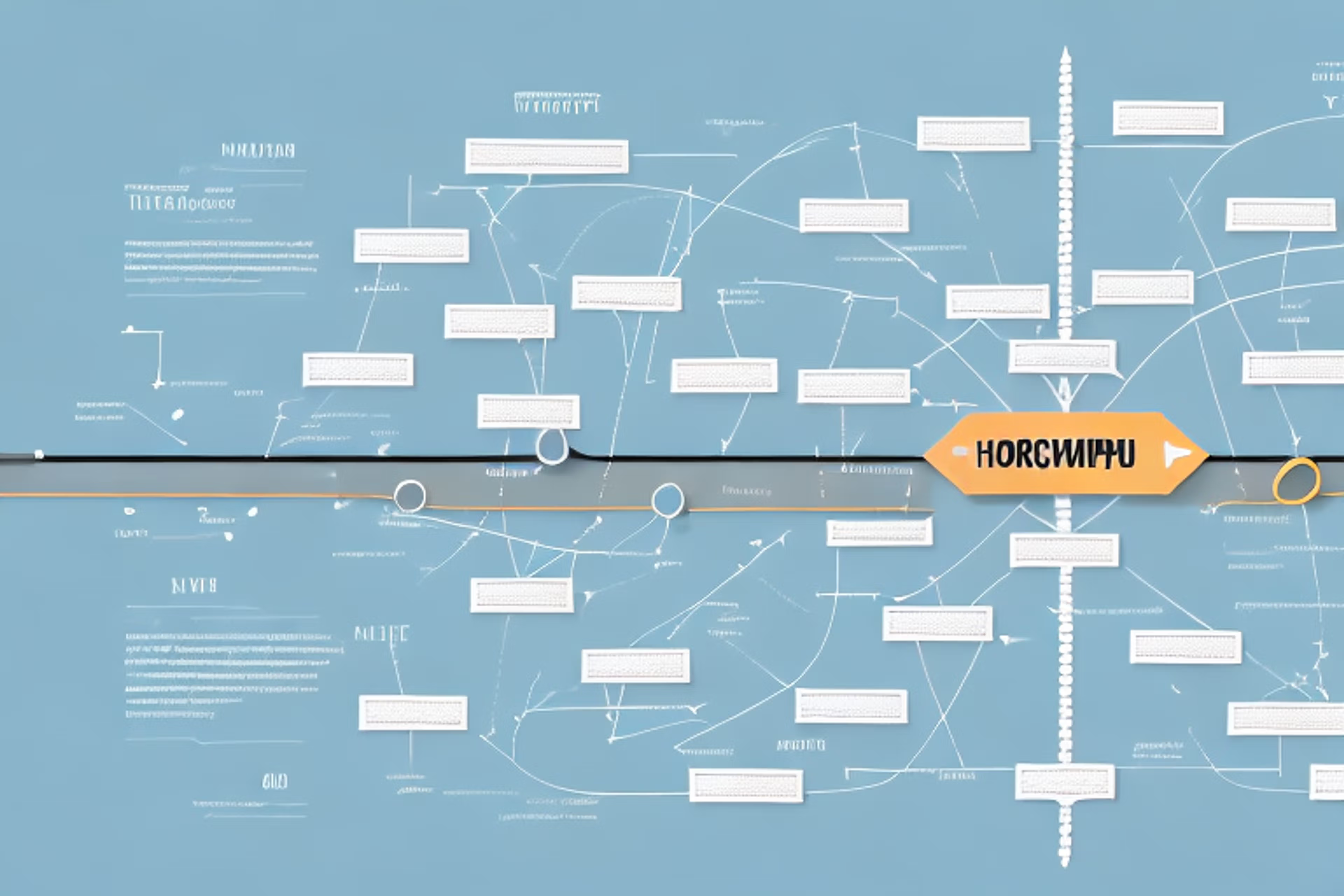Manufacturing to Consulting: Unpacking the Process of Transitioning to Management Consulting
Are you considering a transition from manufacturing to consulting? This article explores the process of making the switch to management consulting, including the necessary skills, experience, and mindset required for success.
Posted March 6, 2025

Table of Contents
Have you been considering a career change from manufacturing to management consulting? While the transition may seem daunting, it is definitely possible with the right approach. In this article, we will explore the process of transitioning from manufacturing to management consulting in detail, including the skills needed, the differences between the two industries, and the steps you can take to prepare for a successful career shift.
Understanding the Role of a Management Consultant
Before we dive into the transition process, it's important to first understand the role of a management consultant. Essentially, management consultants are professional problem solvers who work with clients to improve their business operations. They analyze data, identify areas of improvement, and develop and implement solutions to help their clients achieve their goals. Management consultants work in a variety of industries and for organizations of all sizes and types, from small startups to large corporations and non-profits.
One of the key skills that management consultants possess is the ability to communicate effectively with clients. They must be able to listen to their clients' needs and concerns, and then translate those into actionable recommendations. Additionally, management consultants must be able to present their findings and recommendations in a clear and concise manner, often using data visualization tools to help clients understand complex information.
Another important aspect of a management consultant's role is staying up-to-date with industry trends and best practices. This requires a commitment to ongoing learning and professional development, as well as a willingness to adapt to new technologies and methodologies. By staying current with the latest trends and best practices, management consultants are better equipped to provide their clients with the most effective solutions to their business challenges.
What Skills are Required to Transition from Manufacturing to Consulting?
While management consulting may seem vastly different from the manufacturing industry, there are several transferable skills that can help make the transition smoother. Some of these skills include:
- Strong analytical and problem-solving skills
- Excellent communication and interpersonal skills
- Experience working with data and conducting research
- Project management skills
- Flexibility and adaptability
Additionally, it can be useful to have knowledge of business operations and strategy, as well as an understanding of financial analysis.
Another important skill to have when transitioning from manufacturing to consulting is the ability to think strategically and creatively. In consulting, you will be tasked with finding innovative solutions to complex problems, and being able to think outside the box is crucial. It is also important to have a strong work ethic and the ability to work well under pressure, as consulting projects often have tight deadlines and require long hours of work.
Key Differences Between Manufacturing and Consulting Industries
While there are certainly similarities between manufacturing and consulting, there are also several key differences that you should be aware of as you prepare for the transition. One of the main differences is the work environment. While manufacturing tends to be very hands-on and operational, consulting is more focused on analysis and strategy development. Additionally, consulting often involves a lot of travel and working in teams, whereas manufacturing may be more isolated and independent.
Another major difference is that consulting typically requires a higher level of education and expertise. While manufacturing can be learned through on-the-job training or vocational education, consulting often requires a bachelor's or master's degree in a related field such as business or finance. Additionally, many consulting firms prefer candidates with prior consulting experience or experience in a related field such as finance, marketing, or operations.
One more difference between manufacturing and consulting is the nature of the work. Manufacturing involves producing tangible goods, while consulting involves providing intangible services. This means that manufacturing companies have to deal with issues such as supply chain management, inventory control, and quality control, while consulting firms have to focus on delivering high-quality advice and solutions to their clients. Additionally, manufacturing companies often have to deal with physical assets such as machinery and equipment, while consulting firms rely more on intellectual capital such as knowledge and expertise.
The Importance of Networking in the Consulting Industry
As with any industry, networking is crucial to success in management consulting. Building relationships with professionals in the field can help you learn more about the industry, gain insight into the hiring process, and potentially even land job opportunities. Some ways to network in the consulting industry include attending industry events, joining professional organizations, and connecting with professionals on LinkedIn.
Steps to Take When Preparing for a Career Change to Management Consulting
If you're serious about transitioning from manufacturing to management consulting, there are several steps you can take to prepare for the shift. These include:
- Researching the industry to get a better understanding of what the work entails and what types of firms are out there
- Gaining relevant experience through internships or entry-level positions in finance, marketing, or operations
- Building your skills in areas such as data analysis, financial modeling, and project management
- Networking with professionals in the industry to learn more about the transition process and potential job opportunities
How to Fine-Tune Your Resume for a Management Consulting Position
Once you feel prepared to start applying for management consulting positions, it's important to make sure your resume is up-to-par. Some tips for fine-tuning your resume for consulting positions include:
- Highlighting your transferable skills and relevant experience
- Showcasing your analytical and problem-solving abilities through concrete examples
- Emphasizing your attention to detail and ability to work under pressure
- Using an easy-to-read format and bullet points to make your accomplishments stand out
Navigating the Interview Process: Tips for Success in Management Consulting Interviews
If you're lucky enough to land an interview for a management consulting position, it's important to be prepared to ace the interview. Some tips for success in consulting interviews include:
- Researching the firm and the interviewer beforehand to get a better idea of what to expect
- Preparing examples of your past experience and how it relates to consulting
- Demonstrating your problem-solving skills through case interviews
- Showcasing your communication and interpersonal skills through confident and professional interactions
Deciding Between Boutique and Big Four Consulting Firms: Pros and Cons
As you begin looking for management consulting positions, you'll likely come across firms of various sizes and types. Two common options are boutique consulting firms and big four consulting firms. Some pros and cons of each include:
Boutique Consulting Firms
- Pros:
- Smaller teams mean more individualized attention and potentially more interesting work
- May have more specialized expertise in a niche area
- Cons:
- Less name recognition and potentially lower pay compared to big four firms
- May not offer as much mobility or growth potential
Big Four Consulting Firms
- Pros:
- Well-known and respected name in the industry
- More opportunity for mobility and advancement
- Cons:
- Often very large and potentially more bureaucratic
- May focus more on business operations than specialized expertise
What to Expect During Your First Year in Management Consulting
If you do decide to make the transition to management consulting, your first year on the job will likely be a period of learning and growth. Some things you can expect during your first year include:
- A steep learning curve as you adjust to a new work environment and ways of working
- Potentially long hours and high pressure situations
- Opportunities for professional development and mentorship
- An emphasis on teamwork and collaboration
Top Challenges Faced by Those Transitioning from Manufacturing to Consulting
While the transition from manufacturing to consulting can be exciting and rewarding, it's important to be aware of some of the challenges that come with the territory. Some common challenges faced by those transitioning to management consulting include:
- Adjusting to a new work environment and culture
- Gaining the necessary skills and knowledge to be successful in a consulting role
- Maintaining a work-life balance in a high-pressure industry
- Navigating the competitive job market and potentially lengthy hiring processes
How to Develop an Effective Transition Plan for Moving into Management Consulting
Given the challenges and potential obstacles, it's crucial to develop an effective plan for transitioning from manufacturing to consulting. Some steps you can take to develop a plan include:
- Assess your skills and knowledge to identify areas of strength and areas in need of improvement
- Research different consulting firms and identify those that align with your interests and goals
- Connect with professionals in the industry and ask for advice on the transition process
- Develop a schedule and timeline for preparing your resume, networking, and applying for jobs
Balancing Industry Knowledge with New Skills When Entering the Consulting Field
As you enter the consulting field, it's important to strike a balance between leveraging your existing industry knowledge and developing new skills. While your manufacturing experience may be a valuable asset in certain consulting roles, it's also important to be willing to learn new concepts and ways of doing things. Some ways to balance industry knowledge with new skills include seeking out training and professional development opportunities and being open to feedback and constructive criticism.
Strategies for Building a Strong Professional Network in the Consulting World
As we noted earlier, networking is crucial to success in the consulting industry. Some tips for building a strong professional network in consulting include:
- Attend industry events and conferences to meet new people and learn about the latest industry trends
- Join professional organizations and participate in online forums
- Stay in touch with former colleagues and supervisors
- Volunteer in your community and participate in extracurricular activities to expand your network beyond the workplace
Common Misconceptions About Management Consulting: Debunking Industry Myths
As with any industry, there are several common misconceptions about management consulting. Some of these include:
- Consulting is all about numbers and spreadsheets
- Consulting is all about telling people what to do
- Consultants work 24/7 and have no work-life balance
While there may be some truth to these myths in certain cases, they certainly don't represent the entire industry. Consulting involves a wide variety of skills and experiences, and there are firms out there that prioritize work-life balance and collaboration over endless hours and cutthroat competition.
Conclusion
In conclusion, transitioning from manufacturing to management consulting can be a challenging but highly rewarding process. With the right skills, knowledge, and approach, you can successfully make the jump and build a successful career in consulting. By understanding the role of a management consultant, building your skills and experience, networking effectively, and preparing carefully for the hiring process, you can position yourself for success in this exciting and dynamic industry.



















